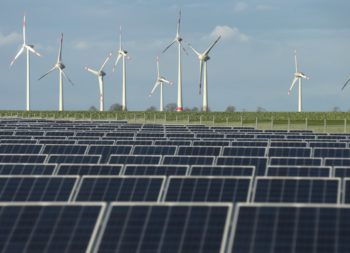 Somewhere out there, Martin Eberhard is beginning to believe in karma.
Somewhere out there, Martin Eberhard is beginning to believe in karma.
Over the last week, the market valuation of Tesla, Elon Musk’s electric car company, has declined significantly because, as Loup Ventures’ Gene Munster wrote this week, Mr. Musk’s behavior is “fueling an unhelpful perception of [his] leadership — thin-skinned and short-tempered.”
Those descriptive words are an understatement. When negative headlines arose from a SpaceX rocket explosion, not an unheard of event in space exploration, he wouldn’t rule out interference, perhaps from an alien or a competitor.
When journalists criticized Tesla’s high cash-burn ratio and SpaceX’s poor track record, he called for the creation of a journalist-scrutinizing site named after an old Soviet Union propaganda newspaper.
The recent incident involving the rescue of the Wild Boars, the Thai soccer team, was unprecedented. It involved an on the fly, innovative solution that had never been tried in cave diving by the Thai SEALs.
This kind of rescue is working against time, fighting against the effects of exposure, maneuvering in openings from 2 feet to 60 cm.
Mr. Musk came up with a solution that would not have worked involving a mini-sub that was too long and too thick. And, worst of all, when a heroic diver who helped rescue 12 Thai children from a cave criticized Mr. Musk’s plan to save the day, Mr. Musk defended his idea and baselessly called his critic a pedophile.
Because of these childish antics, investors have pulled out of Tesla in droves, making it the most prominent short position on the entire U.S. stock market. Today, even Steve Eisman of “The Big Short” fame announced he is now in the anti-Tesla investing camp.
There is an emerging trend that is being noticed concerning the typical Musk template, a public-private financing model, underpinning a long-shot startup.
Given that the Musk Empire has received over $5 billion in subsidies and tax incentives to date, it would be wise for Washington officials to ponder the reason for their lack of confidence in Mr. Musk’s products.
In this case, the answer appears clear: Mr. Musk’s products are a far cry from what he says they are. He knows it, and that’s why he’s acting the way he is.
Mr. Musk’s erratic behavior appeared to begin on a Tesla investor conference call in May, when he dismissed investors’ concerns, calling inquiries related to Tesla‘ future capital requirements “boring bonehead questions” and refusing to provide details on delayed Model 3 reservations.
Rather than respond to serious inquiries, Mr. Musk opted for a significant number of millennial questions off YouTube — an act of pure deflection.
What Mr. Musk didn’t seem willing to talk about was how Tesla refunded 23 percent of all Model 3 deposits, at $2500 per order, many of which came from investors who have been waiting patiently for years for their cars.
These refunds certainly won’t help Tesla’s $6,500 dollar-per-minute cash burn rate, and it could be part of the reason why this week, Mr. Musk asked his suppliers for money back on purchases Tesla has made since 2016.
Tesla has also laid off 9 percent of its workforces facing workplace safety investigations, and stopped safety testing of its vehicles, seemingly to inflate its production numbers artificially. Taxpayers still provide support to the company to the tune of billions.
SpaceX isn’t in any better of shape. A NASA report unveiled that the company hiked the cost of future government launches by 50 percent because it now has “a better understanding of the costs involved after several years of experience with cargo resupply missions.”
With the installation of these higher prices, one would think that, due to its numerous explosions and risky fueling strategy that NASA advisers have cautioned against, the gamble wouldn’t be worth it anymore, and SpaceX’s government contracts would fizzle out.
Yet, the Air Force just awarded the company a $130 million rocket launch contract.
Given his recent erratic behavior, it is clear that the stress from all these years of shortcomings is finally coming to a boiling point for Elon Musk, who seems apprehensive about his ability to deliver.
As “The Big Short“‘s Steve Eisman said, “Elon Musk is a very, very smart man but there are a lot of smart people in this world and you’ve got to execute. He’s got execution problems.”
Wall Street has responded by pulling out its money. When will the government follow its lead?
Read more at Washington Examiner

















The worst shortcoming of the mini-sub was it’s total lack of flexibility. Anybody following the news reports and seeing television footage had to know that any equipment had to be flexible, to be able to bend around narrow obstructions. How Musk’s team overlooked this basic requirement is beyond comprehension, and the video of their tests in a swimming pool passing under completely unrealistic obstacles, only confirmed their unworldliness. I suspect that Musk’s developers were dazzled by their technical prowess without making sure it was “fit for purpose”!
Payback time, Musky.